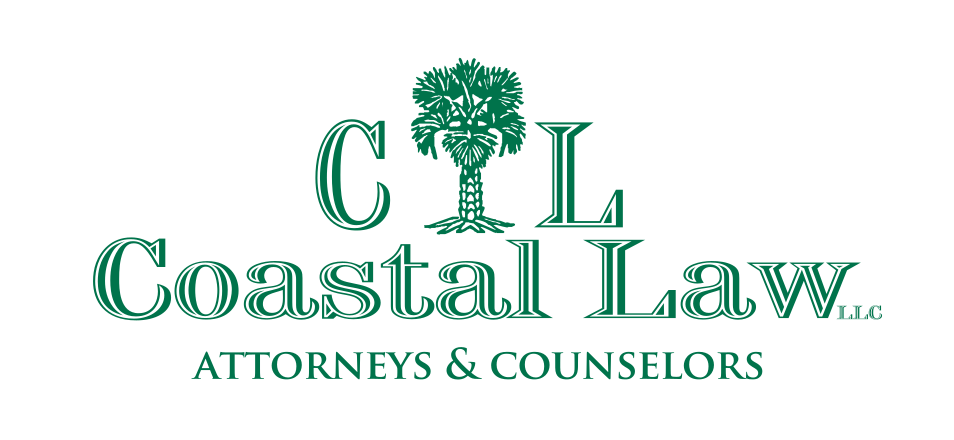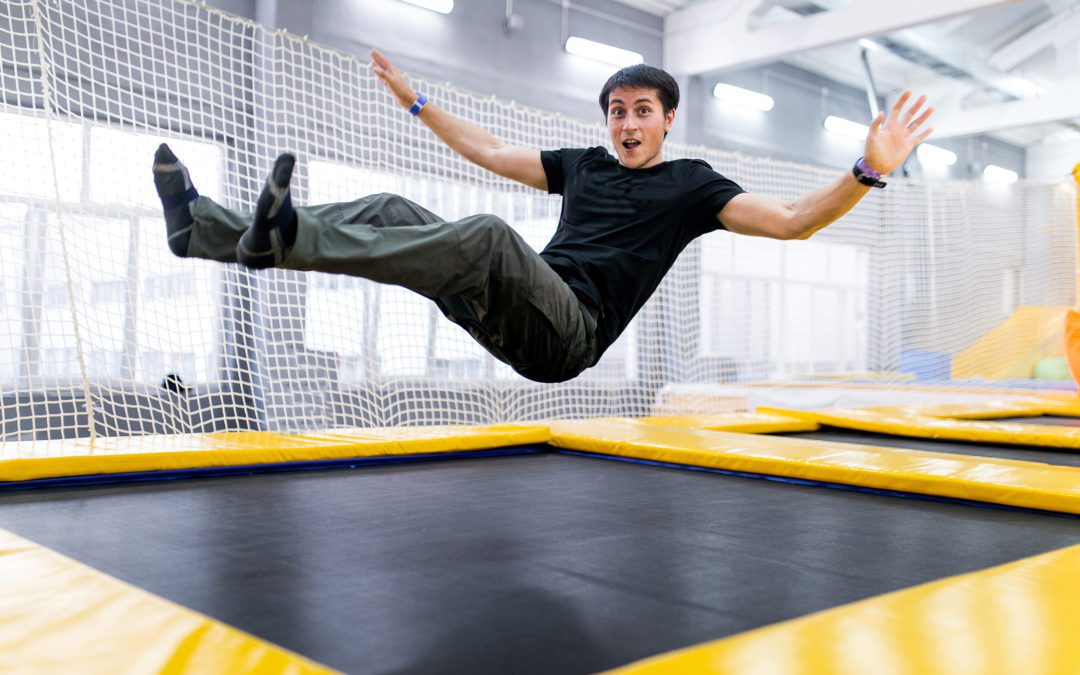Trampoline basketball, rock climbing, trampoline dodgeball, jumping as high as possible with your friends, possibly trampoline laser tag or a virtual reality arcade? I’m with you, it sounds awesome.
Also, head injuries, broken bones, and injured children whose parents signed away their right to sue with waivers of liability and arbitration agreements…
A new trampoline park in Myrtle Beach sounds like fun, but are trampoline parks safe for our children? Or are they raking in the cash from parents who can’t say no, with little regulation or oversight from local government?
If your child is injured at one of these parks, you may be able to recover compensation even if you signed a waiver on behalf of your child. Call or email the Myrtle Beach trampoline park injury attorneys at Coastal Law for a free consultation about your case.
New Trampoline Park in Myrtle Beach
The new trampoline park in Myrtle Beach, Big Air Trampoline, has eight trampoline parks operating across the country, and, according to their website, has four more trampoline parks that are about to open including the one in Myrtle Beach.
None of the states where Big Air Trampoline operates regulate the trampoline park industry except Arizona, where the regulations are apparently being ignored by many trampoline park companies.
Are Trampoline Parks Regulated?
If you are going to let your children jump on trampolines in an area filled with other children jumping on the same trampolines, you want to know your child is going to be safe, right?
You may want to know that experts have studied the issue, made recommendations for how to keep the children safe, and that those recommendations were turned into regulations. You may want to know that some government official from some department somewhere is inspecting the facilities and ensuring that they comply with the safety regulations, right?
Most states, including South Carolina, do not have safety regulations for trampoline parks. There is no government agency responsible for inspections. The industry is “self-regulated,” at least until enough injured and dead children get the attention of legislators.
If you want your children to jump in a trampoline park, you will most likely be required to sign a waiver of liability that says they are not responsible for any injuries to your child. Even if the injuries are caused by the company’s failure to make their facility safe, they will claim they are not responsible for injured children.
Arizona passed a law to regulate trampoline parks, named “Ty’s Law” after a man who died after flipping into a foam pit at a trampoline park:
In 2012, Kerley’s son, Ty Thomasson, was killed after flipping into a foam pit at a Phoenix trampoline park that was only three feet deep. In the years that followed, Kerley worked with lawmakers to pass HB 2179, known as “Ty’s Law,” making Arizona the first state to regulate indoor trampoline parks.
The law requires trampoline parks to:
- Register with the state fire marshal’s office;
- Conduct annual inspections through their insurance company;
- Carry $1-million in liability coverage; and
- Self-report emergency incidents to the state within 10 days.
Except, according to the article linked to above, some parks are not following the law and there is no enforcement – they are not reporting injuries, and some are not even registering their businesses:
In addition to conducting thousands of public and private facility inspections, six deputy fire marshals are tasked with implementing Ty’s Law, which they said is more of an “administrative review.”
“It’s something we’re having a hard time focusing on because we’re trying to meet our other obligations of inspecting schools and stuff like that,” Deputy Fire Marshal Robert Merigan told ABC15.
Merigan said fewer than 20 parks have registered with the state, and the agency is still working to bring current parks in accordance with the law.
The Assistant State Fire Marshal said Friday there are 11 parks registered in the state. Two other locations are known by the fire marshal’s office to not be registered. ABC15 found five other parks statewide that would seem to meet the criteria to register.
Technically, the office could shut down a park for not registering or reporting injuries, but that’s never occurred.
So, in the absence of any government oversight, what are trampoline parks doing to make their facilities safe?
What are Trampoline Parks Doing to Keep Kids Safe?
Skyzone in Missouri says they analyze all incidents internally and consult with third-party consultants. “At skyzone, the safety of our guests is our top priority. When there is an injury, all incidents are analyzed internally and we consult with third-party consultants.”
Urban Air Trampoline Parks says they follow “voluntary” industry standards – standards that are not mandated by legislation or subject to any government oversight:
Browning said his Urban Air Trampoline Parks – unlike some other parks – adhere to voluntary industry oversight, known as ASTM International standards, which require specific design, manufacture, installation, maintenance and inspection rules.
“We spend the money, go the extra mile to make sure they’re as safe as possible,” Browning said. “And personally, I think there are parks out there that need to get up to the standard. Because anytime there’s an injury that stems from someone not doing something correctly, it gives the industry a bad name.”
The International Association of Trampoline Parks, an organization that has no authority or control over individual trampoline parks, says they are developing “new campaigns and safety standards” that will help the industry regulate itself:
Bethany Evans, Executive Vice President of the International Association of Trampoline Parks, told ABC15 they are working with member parks to implement new campaigns and safety standards.
“We are moving towards developing an industry-wide self-regulatory scheme that will require parks to undergo a third-party inspection based on criteria set forth from the [American Society for Testing and Materials] standards as it applies to indoor trampoline parks. This will go into effect for renewals beginning in 2019,” Evans said.
“We are currently working on developing a safety awareness campaign geared towards jumpers, parents and educators ‘Let’s Get Jumping’ designed to educate on what to look for before booking jump time at a park. We will be ready to launch this initiative later this year.”
Big Air Trampoline Park in Greenville, SC, notes that kids just need to follow the rules – they closed down an attraction in their park after multiple children were injured because their hands got stuck between a conveyer belt and the floor:
The owner of Big Air Greenville told WYFF News that the kids weren’t following the posted rules, but he wants to be sensitive to their injuries.
“We are deeply concerned about these incidents and we are working around the clock to address all concerns,” owner Dustin Pelletier said. “Our guests are a part of the Big Air family and we want to treat them like we would treat our own family members.”
The parents of the four and five-year-old children shared disturbing photos of the injuries on Facebook because they felt that the Park’s management wasn’t taking their concerns seriously:
Several images have been shared thousands of times on social media from two parents who said their kids were hurt by the same attraction at Greenville’s Big Air Trampoline Park.
The parents want to remain anonymous, but shared their frustrations on Facebook after feeling their concerns weren’t taken seriously by management.
The girls — ages 4 and 5 — were injured while playing on a giant treadmill action game called “Ramp Up.”
Many of the trampoline parks are franchises, so the owner of Greenville, SC’s Big Air Trampoline Park may or may not be the same as the owner of the new trampoline park in Myrtle Beach that is also called Big Air Trampoline Park.
How Do Trampoline Parks Compensate Children Who are Injured?
You signed a waiver of liability and they will insist that they are not responsible.
You may have also signed an arbitration agreement that prevents you from filing a lawsuit. If you do file suit and your case is allowed to proceed, they might not even have liability insurance because they are not required by the state to have an insurance policy.
Like a mother of three in Texas who filed suit after suffering paralysis:
Grace Quiroz, a mother of three, signed such a waiver.
“I went on a ramp and did a little flip. It wasn’t a big jump. Immediately I couldn’t feel anything,” Grace Quiroz told WFAA during a 2014 interview.
She likely will spend her life in a wheelchair.
Quiroz has filed a lawsuit. But one of the trampoline park’s key legal defense is that she signed a waiver, limiting their liability in her injury…
A WFAA review found several of the 21 DFW-area trampoline parks do not carry liability insurance, but rather remain self-insured.
If enough injured or killed children file lawsuits, the facility might just declare bankruptcy and close up shop. For example, a highway patrol officer in California filed suit for injuries after jumping into a foam pit, despite having signed a waiver of liability, only to find the company was gone:
Diondre Hurn is recovering from a similar accident at the Jump Highway trampoline park in Fairfield. Surveillance video shows paramedics pulling the CHP officer out of the foam pit as his family watched in horror…
The Hurns have decided to try and sue Jump Highway anyway, but the business has since closed and declared bankruptcy.
Trampoline parks need to be regulated by the states. With the increasing numbers of these parks in South Carolina, we need to pass laws to regulate this industry. At a minimum:
- Trampoline parks should be required to comply with well-defined safety standards,
- Trampoline parks should be prohibited from requiring liability waivers or arbitration agreements for children,
- There should be regular inspections by a government agency to ensure compliance, and
- Trampoline parks should be required to carry enough liability insurance to compensate accident victims.
SC Trampoline Park Injury Lawyers in Myrtle Beach, SC
If your child was injured at a trampoline park in Myrtle Beach, the Myrtle Beach trampoline park injury attorneys at Coastal Law will investigate your child’s accident, help you to determine who is liable and whether a release of liability will be enforceable, and work to get maximum compensation for your child through settlement or trial.
Call the Myrtle Beach trampoline park lawyers at Coastal Law today at (843) 488-5000 or email us through our website to set up a free consultation and case review.


